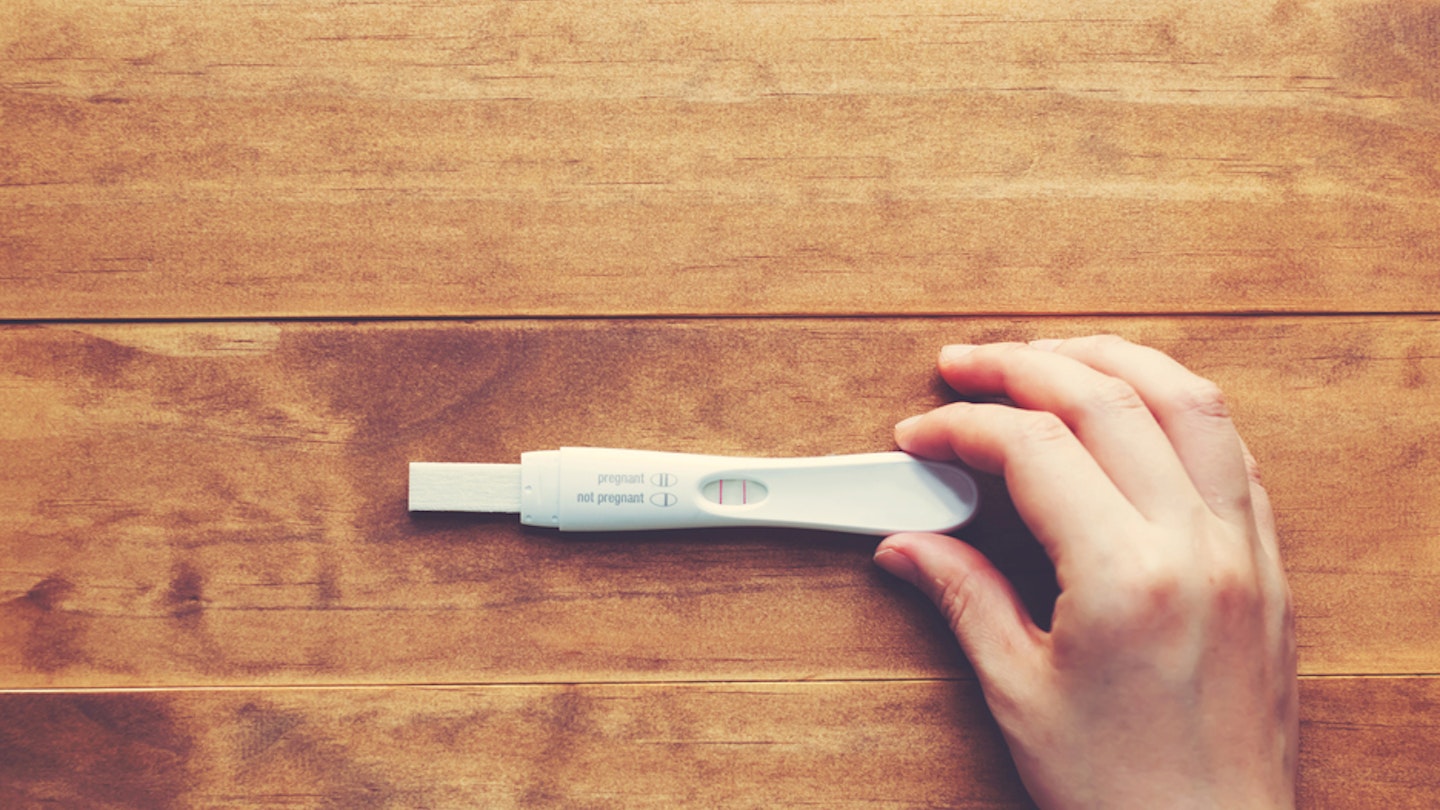Whether you’ve been trying for a while, your dog's acting a bit funny around you or you've just noticed you’ve missed your period but still might be feeling period pains, working out when to take a pregnancy testcan be difficult. As simple as it might sound (weeing on a stick that is), these little tests are actually far more complicated than that – from when you can take them to how accurate the result is, here’s all you need to know about pregnancy tests.
Read more: One week pregnant: advice and symptoms
When to take a pregnancy test
You can take a pregnancy test up to five days before your period is due. The early tests will promise to give readings ‘six days before your missed period’ – your missed period day is the day after your period is expected. During the early days of pregnancy, yourhCG levels rise rapidly, so if you want as accurate a result as possible, do the pregnancy test on the day of your missed period. Whether positive or negative, the result will be over 99% accurate.
If you can, do the pregnancy test first thing in the morning as this is when your hCG levels will be at their highest. If this isn’t an option (or you want to do a test sooner rather than later), hold off going to the toilet for a few hours and then take the test. Avoid drinking lots of liquids to make yourself wee – this actually can dilute your urine and lower your hormone levels, increasing your chances of getting an incorrect result.
How to read a pregnancy test
Whatever test you choose, make sure you read the instructions carefully beforehand to ensure you fully understand what those little blue lines mean and ensure your pregnancy test is still in date (yes, they can go off).
Although each test might vary slightly, on all at-home pregnancy kits there should be two result windows. One of these is a test window, which should show a line before taking the test – this is simply a sign the test is working.
Once you’ve waited the allotted time, if your test has two windows, you’ll see a single line or two lines making a plus sign in the window. If there is a cross, you’re pregnant, if there is one line, you’re not.
If your test has a single window, normally the test line and the result line will appear side by side if you are pregnant. If not (and there is only one line in the window) you are not pregnant. It’s worth noting that even the faintest of lines can be an indicator that you are in fact pregnant.
How do pregnancy tests work?
A pregnancy hormone called human chorionic gonadotropin, or hCG, is produced by your body when you’re pregnant. ‘The levels of hCG begin to rise after fertilisation, and is what your pregnancy test picks up in your urine when the positive line appears,’ says GP Philippa Kaye. All pregnancy tests work by detecting this hormone, which increases in intensity as pregnancy progresses. Some tests can detect it earlier than others and display the results as either lines on non-digital versions or as words on digital tests.’
What are the earliest pregnancy tests I can take?
Whether you're sure you're pregnant or you suspect it could be a phantom pregnancy, there are many early test options. You can buy ultra-sensitive early result pregnancy tests which can now detect the pregnancy hormone up to five days before your period is due, however, these are more expensive than other cheaper pregnancy tests on offer. It’s worth noting, you shouldn’t be disappointed if you get a negative result, as these tests are not always 100% accurate. Leading pregnancy test company First Response said that its early result pregnancy test detected the pregnancy hormone in 76% of pregnant women five days before their period was due, but in more than 99% of women three days before their period was due.
This is because the levels of hCG vary from woman to woman, and depending on when you do the pregnancy test, you may be pregnant, but just not have enough of the hormone to get a positive result.
How accurate are pregnancy tests?
According to the NHS ‘home pregnancy tests are accurate as long as you follow the instructions correctly. A positive result is almost certainly correct. However, a negative test result is less reliable. The result may not be reliable if you don’t follow the instructions properly or take the test too early.’
If the test is negative, ensure you check that you haven’t taken the test too early and if you think you might have, take another test in a few days. As we mentioned above, the level of hCG in your urine varies from woman to woman, so you might just need to wait a few days for your hormone levels to rise. If it’s positive, because home pregnancy tests are now so accurate you might find your GP doesn’t repeat the test when you go for an appointment.
It’s also worth noting, some medications can affect pregnancy test results. These include promethazine which is used to treat certain allergies, sleeping tablets, or medicines used to treat infertility. If you are worried about any medications you are taking, it’s a good idea to talk to your GP.
Will my GP do a pregnancy test too?
Your GP can do a blood pregnancy test which can also identify the presence of pregnancy hormone hCG. On a blood pregnancy test, the results will either show the exact amount of hCG in the blood, or confirm the presence of hCG in the blood. If you are pregnant, the level of hCG is determined to be between 5 and 25 mlU/ml. Normally you will be asked to do a second blood test 48 hours later, as in the early days of pregnancy your hCG levels double approximately every 48 hours. If the test is negative, the level of hCG will be under 5 mlU/ml.
Whilst pregnancy blood tests are not always necessary, if you are at higher risk for miscarriage or ectopic pregnancy, they might be recommended.
What are the early symptoms of pregnancy?
Dreaming of getting pregnant? You can find a comprehensive list of the early signs of pregnancy to look out for here, but put simply, the early signs and symptoms of pregnancy to look out for are as follows:
Early Pregnancy Signs
 1 of 34
1 of 341) Tiredness
This is one of the first signs of pregnancy to hit as your body gears up to start supporting your baby and can even start within two weeks of conceiving. If you're feeling extra exhausted and can't work out why, this could be a sign your body is getting ready to grow a baby.
 2 of 34
2 of 342) Nausea
Morning sickness is caused by an increase in the pregnancy hormone human chorionic gonadotropin (hCG). For many, this is the first sign of pregnancy. Don’t be misled by its name - while the nauseous feeling is most common in the morning, it can strike at any time of day.
 3 of 34
3 of 343) Missed period
Another common indicator and one of the most concrete signs you're expecting. That said, if you have irregular or light periods, this can be an easy one to miss. What's more, some women still have periods after they conceive.
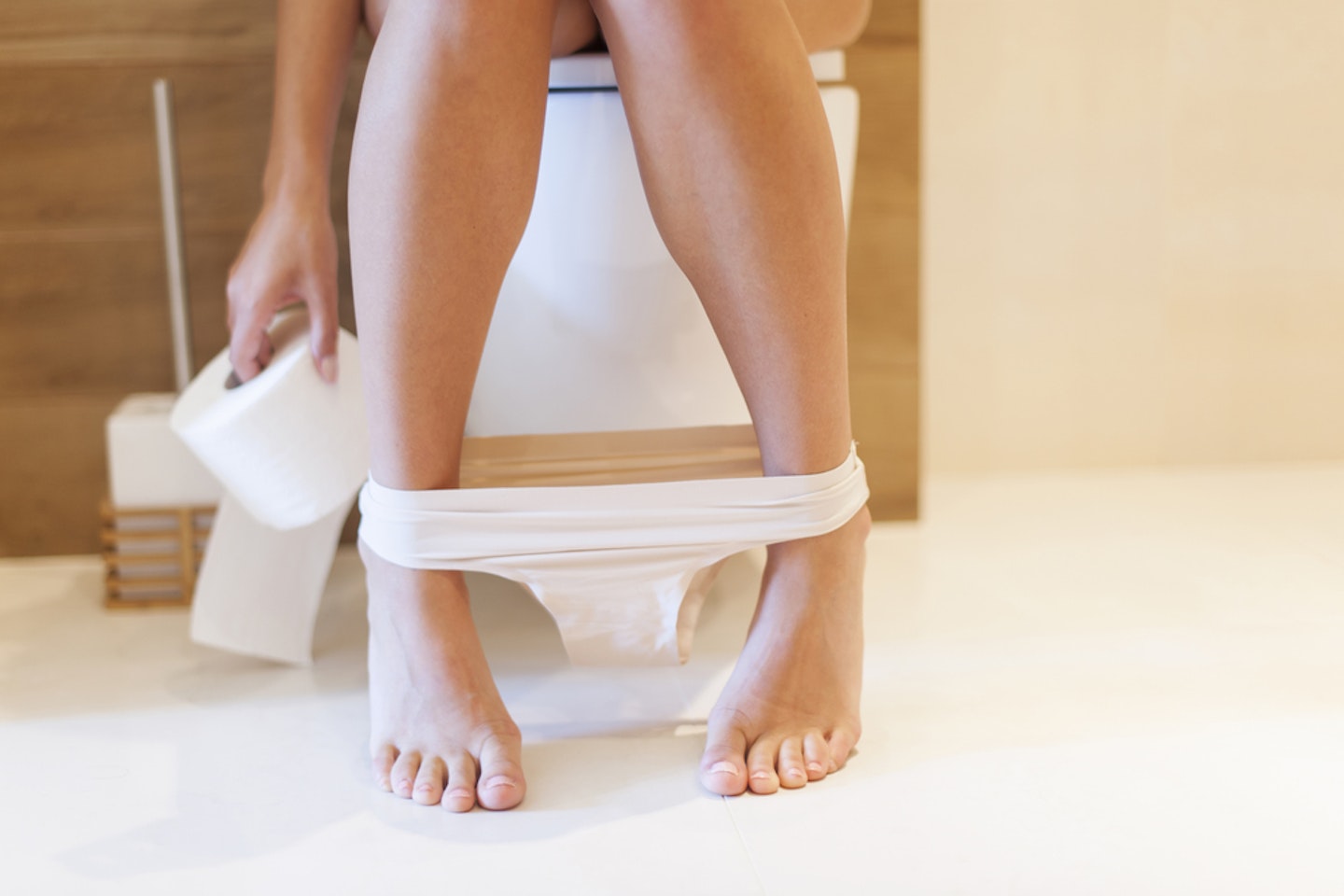 4 of 34
4 of 344) Spotting or bleeding
This might sound strange and is another one that can be confused with a period, but around a third of women experience some sort ofimplantation bleeding. Implantation bleeding is when the foetus implants into the lining of your uterus and causes a small amount of blood. This usually happens 6 to 12 days after you've concieved.
Spotting in early pregnancy can also be a sign of an ectopic pregnancy, so it's important to talk to a healthcare professional if you're experiencing unforseen bleeding.
ectopic pregnancy- earlier diagnosis can save lives and fertility.
 5 of 34
5 of 345) More toilet trips
Although your baby won't be pressing on your bladder just yet (a common side effect you'll experience later in your pregnancy), the hormone changes, plus a greater blood volume and your kidneys working harder could mean you find yourself rushing to the toilet more often right now.
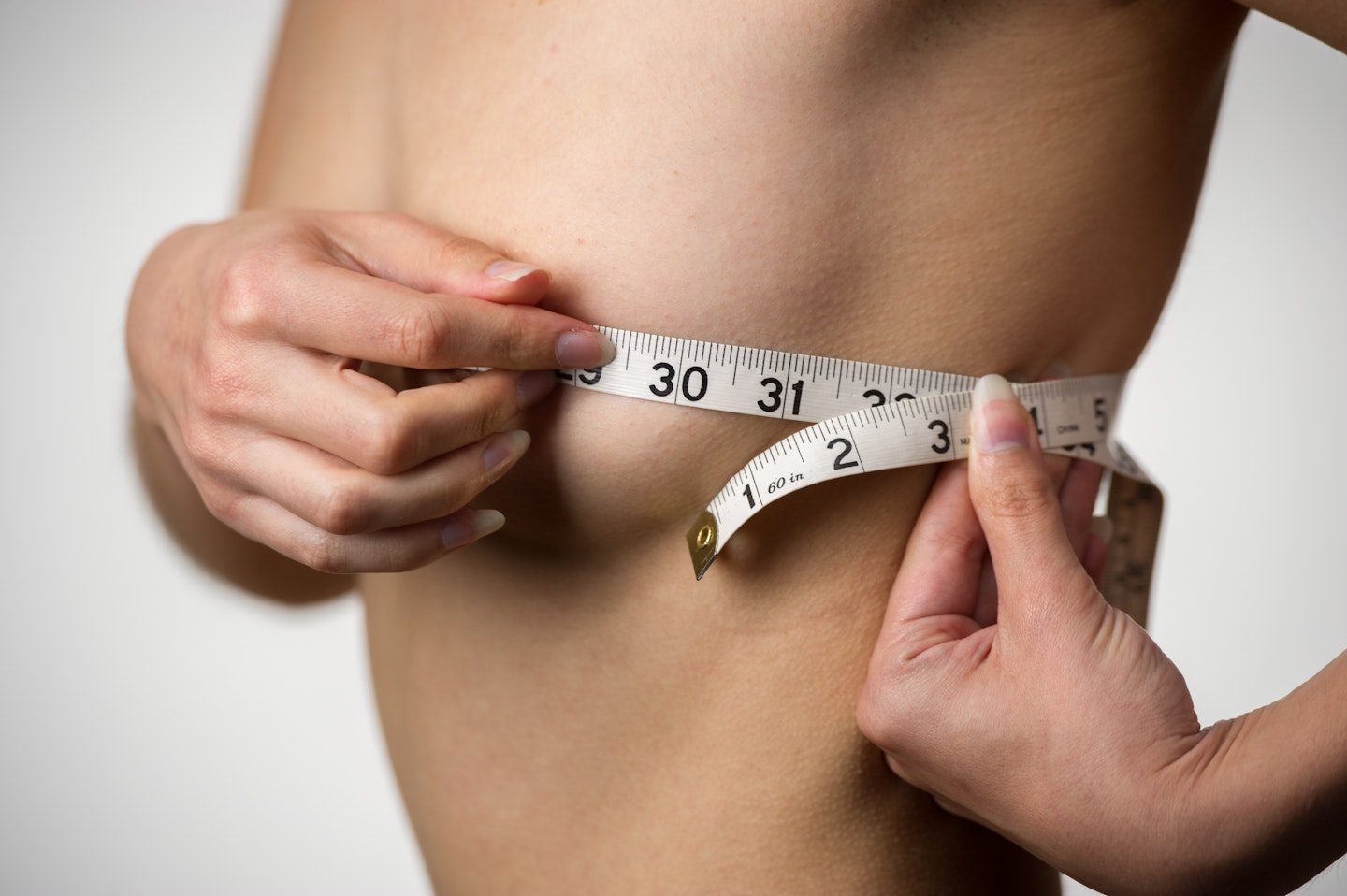 6 of 34
6 of 346) Breast changes
Another extremely common early pregnancy sign is changes in your breasts. For some women, their boobs increase a full cup size within the first six weeks.
 7 of 34
7 of 347) Nipple changes
Pregnancy hormones cause your body's melanin production to increase temporarly - you might notice this has caused your nipples and the area around them (the areolas) to turn a darker colour.
 8 of 34
8 of 348) Bleeding gums
If you've noticed blood when brushing your teeth, it could be that progesterone is to blame. This pregnancy hormone increases the flow of blood to gums, increasing sensitivity and causing them to bleed more easily.
gum disease has been associated with increased risk of preterm birth
Bleeding gums can be an indicator of gum disease, which has been associated with risk of preterm birth, so always see your healthcare professional if symptoms persist.
 9 of 34
9 of 349) Increased vaginal discharge
You may notice your body is producing more milky white vaginal discharge - this is your body's way to preventing harmful infections from travelling upwards and harming your baby.
 10 of 34
10 of 3410) Changes in facial skin colour
A slightly odd sounding symptom, but some women experience changes in facial skin colour during pregnancy. This is medically referred to as melasma, chloasma or 'mask of pregnancy' and is caused by a temporary increase in pigmentation.
 11 of 34
11 of 3411) Feeling lightheaded or fainting
It's thought that the pregnancy hormone progesterone makes your blood vessels relax and widen to increase blood flow around the body, causing low blood pressure.
 12 of 34
12 of 3412) Shortness of breath
Feeling out of breath doing your usual exercise routine or walking up the stairs? The surge of progesterone your body produces when you're pregnant expands your lung capacity which means you'll find yourself needing to take more breaths.
 13 of 34
13 of 3413) Increased sense of smell or taste
If you suddenly can't bear the perfume you've worn for years, or your colleagues choice of tuna sandwich, it could be another early pregnancy sign. This is down to the hormone oestrogen which is heightening your responses to things that might be harmful to your growing baby.
 14 of 34
14 of 3414) Back pain
If you're already suffering from back ache, it could be caused by the pregnancy hormone relaxin, which makes your ligaments and joints relax and become looser so your body is ready to give birth.
 15 of 34
15 of 3415) Feeling pregnant
Some women are so in tune with their bodies they report 'feeling' pregnant before taking a pregnancy test. You might have detected those early hormone changes, so it's worth checking!
 16 of 34
16 of 3416) Metallic taste in mouth
Another common early sign of pregnancy, this one even has it's own name: 'dysgeusia'.
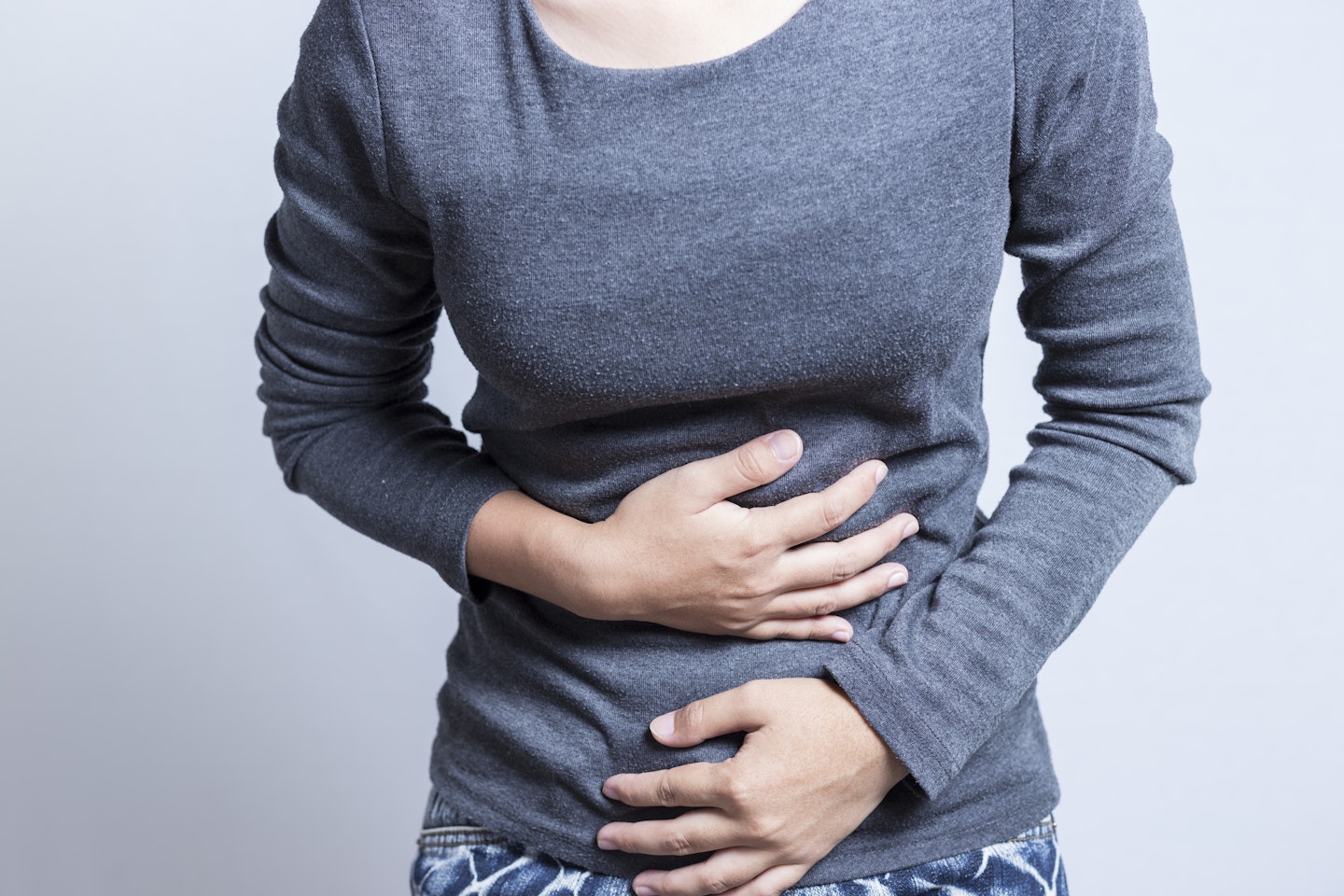 17 of 34
17 of 3417) Period-like cramps
It's the right time of the month and you have the normal period cramps. But wait, these stomach aches could be a sign you've conceived and the egg has implanted into the uterine wall, causing that familiar cramping sensation.
 18 of 34
18 of 3418) Excessive saliva
Medically referred to as ptyalism, this is another one caused by those early hormonal changes.
 19 of 34
19 of 3419) Headaches
Many women experience headaches around the time their period, due to a surge in the hormone oestrogen. After conception, your oestrogen levels also rise, which could be what's causing that pounding head.
 20 of 34
20 of 3420) Food aversions
If you suddenly can't bear the sight or even idea of a boiled egg, it could be that you are experiencing the first trimester pregnancy food aversions. Whilst the egg aversion is a common one, it can happen with any types of food - even your favourites.
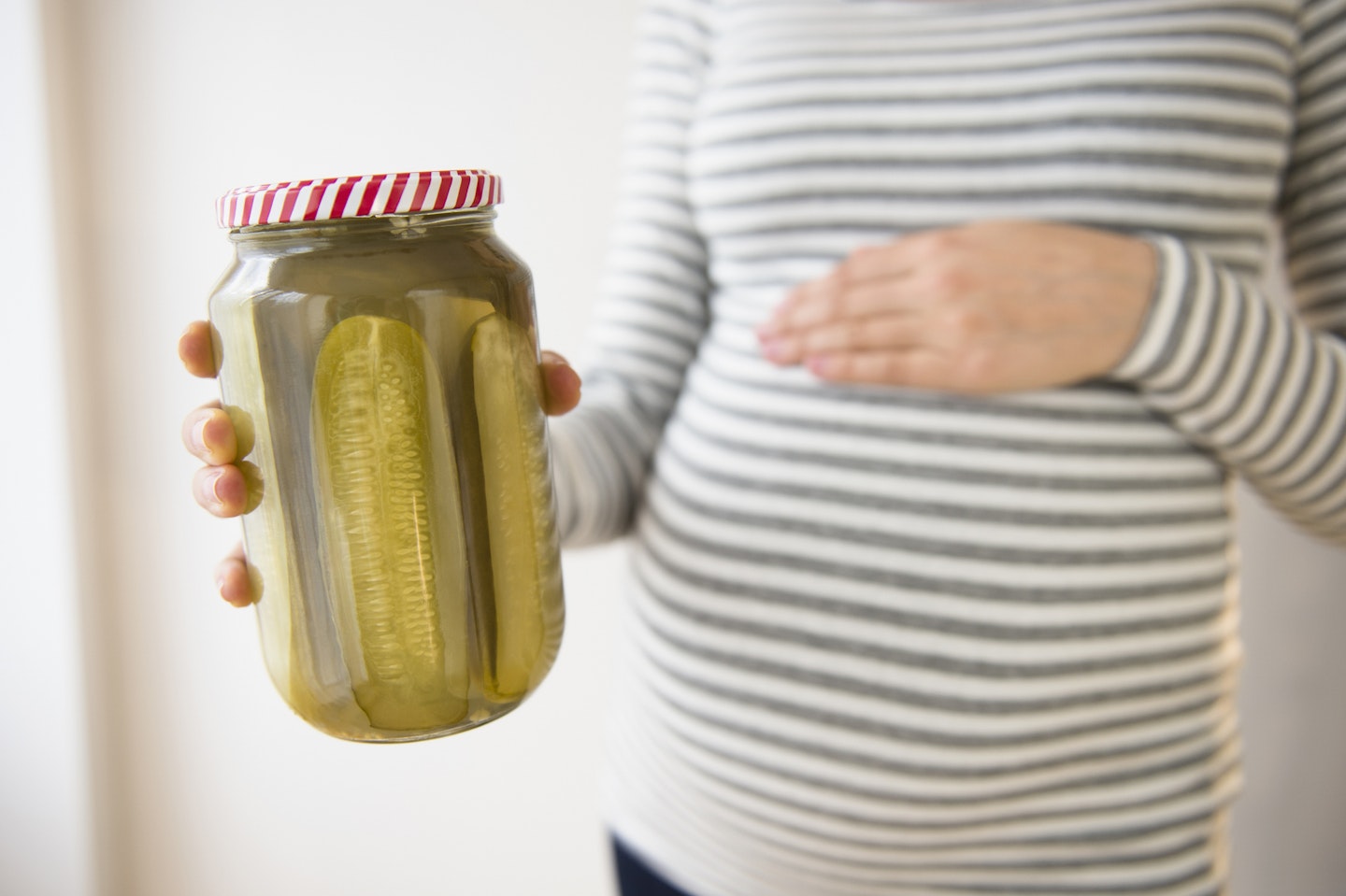 21 of 34
21 of 3421) Cravings
That said, as fast as you'll go off certain foods, you'll start to crave others. A strong desire for something as simple as a fizzy drink, or as unusual as a lump of coal, could be an indicator that you're pregnant.
 22 of 34
22 of 3422) Hunger
Feeling absolutely ravenous all of a sudden? Your body may be feeling low on energy. Make sure you're eating healthy, balanced meals full of micronutrients, but a little bit of what you fancy is good, too!
 23 of 34
23 of 3423) Low libido
If you're suddenly experiencing a really low sex drive after all of that baby-making sex, it could be a sign the job has been done!
 24 of 34
24 of 3424) Increase in sex drive
We know we mentioned low libido as a potential sign of pregnancy, however on the flipside, pregnancy can cause an increase in sex drive thanks to increased levels of Estrogen!
 25 of 34
25 of 3425) Spots or acne
If you're blaming your period on those breakouts, you might be wrong. A surge of progesterone can make your glands produce more pore-blocking oily sebum.
 26 of 34
26 of 3426) More emotional
Have you found yourself weeping on the underground or sobbing at a TV advert you've seen hundreds of time before? Emotions tend to be all over the place during pregnancy (one word - hormones), so if you're on an emotional rollercoaster, it might be time to go and buy a pregnancy test!
 27 of 34
27 of 3427) Moodiness
Feeling extremely grumpy and short tempered? A combination of pregnancy symptoms can wreak havoc with your moods.
 28 of 34
28 of 3428) Constipation and wind
It might be an embarrasing symptom you'd rather not talk about, but wind could actually mean your digestive system is adapting to those baby hormones.
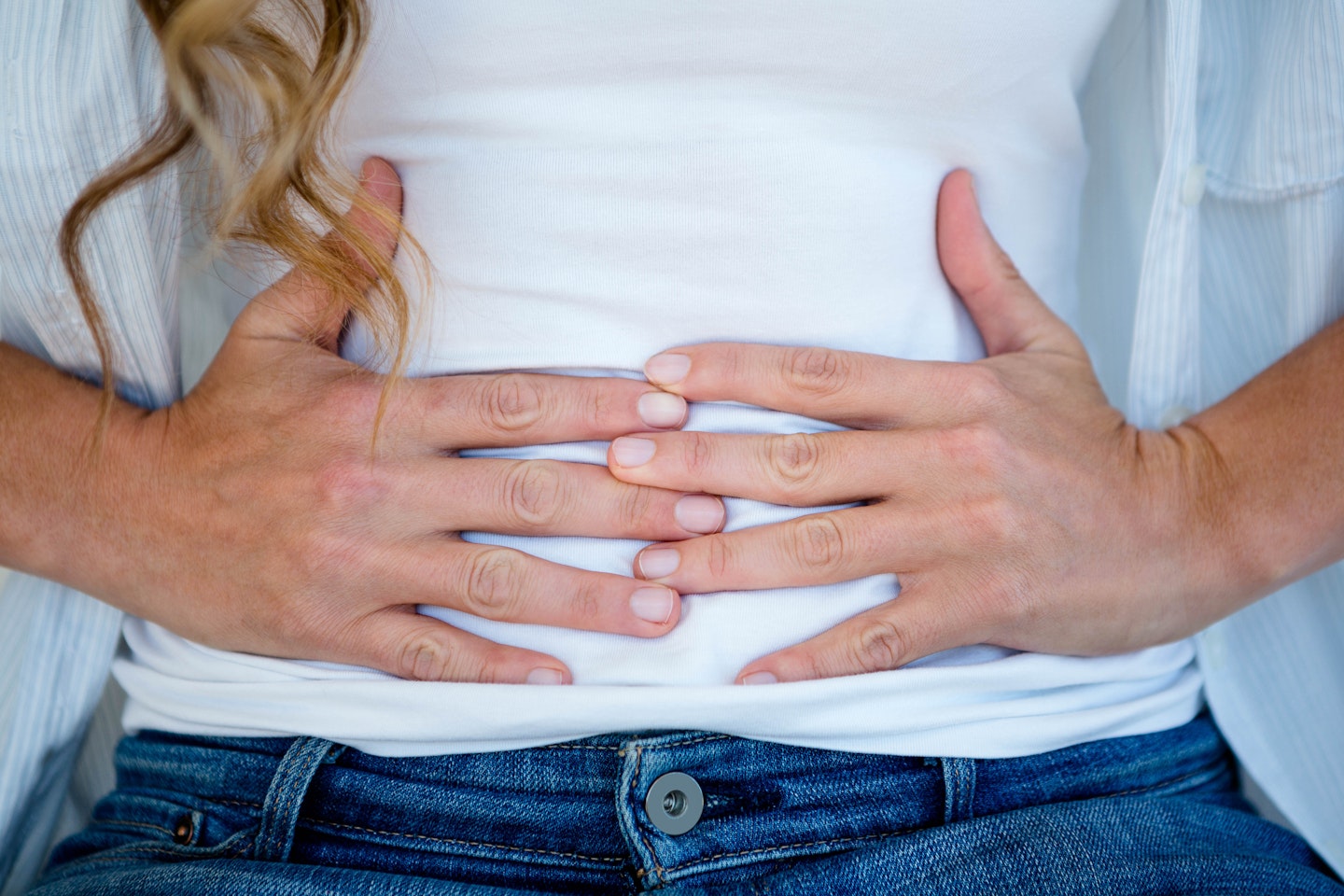 29 of 34
29 of 3429) Bloating
If that pre-period puffiness hasn't disappeared, it could actually be the pregnancy hormone progesterone at play. Feeling bloated? It might be worth taking a test!
 30 of 34
30 of 3430) Temperature changes
Pregnancy causes an increase in blood volume as your body starts to work harder to support your growing baby. Feeling extra hot? It could be an early sign of pregnancy. Some women also feel excessively cold, too.
 31 of 34
31 of 3431) Cold like symptoms
Another one caused by those pregnancy hormones (get ready to hear about them A LOT over the next nine months), if you're suffering from a blocked nose or cold it could be that those pregnancy hormones are cuasing swelling inside your nose, and increasing the amount and thickness of mucus.
It's important to remember that viruses are more common and serious in pregnancy (e.g. swine flu) so talk to your healthcare professional if symptoms persist.
 32 of 34
32 of 3432) Sudden aversion to coffee
Many women report they suddenly dislike coffee in their first trimester and one explanation for this is the body is attempting to protect the fetus from extraneous substances.
 33 of 34
33 of 3433) Tender breasts
Some women find that their boobs feel heavier and more tender than normal when expecting, especially in the first few weeks.
 34 of 34
34 of 3434) Hair loss
Some women report losing more hair in the early stages of pregnancy. Not dramatic hair loss but perhaps finding more hair in the plug hole or in your hair brush. This is likely to be down to nutrient deficiencies which should resolve themselves once your hormones regulate.
What if I have symptoms of pregnancy but a negative test result?
As we mentioned above, sometimes home pregnancy tests can give an inaccurate result if they are taken too soon and your body has not yet produced enough hCG. Alternatively, you may have missed the very faint line on a pregnancy test and read it incorrectly. Finally, it might be worth checking that any medication you are on isn’t affecting the result.
My test has a faint line – am I pregnant?
A faint line means that the test has found the presence of the pregnancy hormone in your urine. If you have done the test correctly and made sure you’re not looking at the control line, then it means you are pregnant. Take another test in a few days’ time when there should be more of the pregnancy hormone to make the line stronger. If you’re worried about interpreting the tests correctly, you can buy tests that simply tell you 'pregnant’ or 'not pregnant’ - then you can be absolutely sure.
How do I work out when I conceived?
Some pregnancy tests have a conception indicator which tells you how many weeks ago you conceived, but if you've used a non-digital device, you can work it out for yourself. Your cycle starts on the first day of your period and is around four weeks long. Ovulation – when your body releases an egg – happens around two weeks into this, and the sperm needs to fertilise it within 48 hours for you to get pregnant.
Knowing when you conceived is how you work out how old your baby is in weeks, which is important when it comes to scans and appointments. Use our ovulation calculator if you’re not sure.
I’m pregnant, now what?
Congratulations, you’re pregnant! Once you’ve told your partner the big pregnancy news, you’ll need to make an appointment to visit your GP so that they can register you with maternity services at your local hospital. They will send you a letter about a ‘booking in’ appointment when they will fill in all the relevant forms and make sure you have your screening assessments and free prescription and dental care information.
As daunting as it might seem, relax and spend these early days preparing yourself. Take a look at our pregnancy week by week to work out what your body and your baby is doing at each stage, and the common side effects to look out for.
Read next: one week pregnant: advice and symptoms
